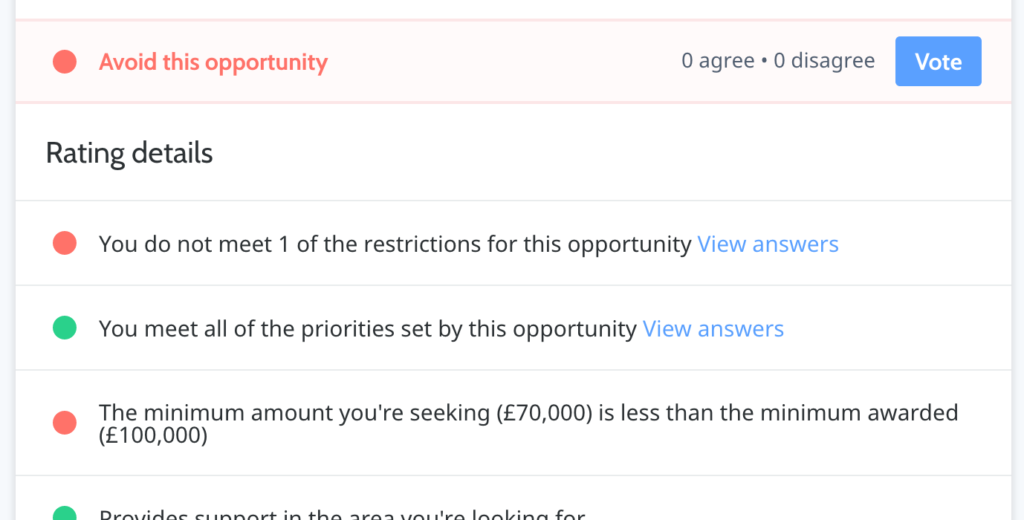Like bees to honey
Guest post by Suraj Vadgama, Founder of Beehive and Product Lead at CAST.
As a funder, are you sifting through lots of proposals that aren’t relevant? Or as a fundraiser, do you waste time finding the right grantmaker to apply to?
 Over the past three years, CAST has worked closely with 360Giving to develop a digital service called Beehive – a free suitability checking tool that uses a funder’s guidelines, priorities and open data to produce a report that helps fund seekers decide where to apply.
Over the past three years, CAST has worked closely with 360Giving to develop a digital service called Beehive – a free suitability checking tool that uses a funder’s guidelines, priorities and open data to produce a report that helps fund seekers decide where to apply.
Since Beehive was first launched in 2015, over 20,000 fund seekers have used it, so we have lots of learning on how data can be used to help match organisations with the best potential funders.
We took this learning into account when revising Beehive in October 2018. These included some of the biggest and most exciting changes to date. This article highlights two of these changes and outlines what the future holds for Beehive.
1. Funding suitability checking tool now free
In a study we ran in June 2018, more than 90% of Beehive users avoided funders they were inappropriate for, or adapted their proposal to make it suitable – saving them time and the wasted effort of applying for the wrong funding opportunity.

An example of the feedback Beehive provides in reports
As a result, we decided to improve the suitability checking system to make it more flexible and provide better feedback. And we made it possible to use Beehive entirely for free.
2. Open and community-led
We’ve been able to make Beehive free to use by introducing two main changes in the way it’s maintained and delivered:
Open
We’ve adopted a simpler business model for those who receive reports.
By default, all reports are free as long as they remain public, and those who wish can make their reports private for a small fee. This change means anyone can browse the support requests being made to a particular funder to help inform their fundraising. Also, Beehive is now open source, meaning anyone can grab a copy of the code to help maintain and make improvements, or even create their own modified version.
Community-led
We’ve refocused the tool to make it easier to add grant opportunities, and we’ve committed to maintaining a set of showcase opportunities ourselves.
An ‘opportunity’ is any type of social sector funding or programme that requires an application to be submitted and reviewed. Current examples include grant funds, and in the future we hope to expand the types of opportunities. This change allows anyone to add and edit opportunities that Beehive can produce a report for, meaning everyone from established funders through to individuals can be part of the community that maintains Beehive.
Complementary and flexible
Looking to the future, we’ll be continuing to drive Beehive forward in two key areas:
Complimentary
By making Beehive free to use when creating public reports, we’re working to create the first open dataset of its kind – the support requests that social sector organisations are making. This new dataset is complementary to data published in the 360Giving standard.
In 2019 we’ll be encouraging more funders to add their own funding opportunities as well as developing features to explore this data in useful ways.
Flexible
Lastly, we’ve made the tool more robust and flexible to the types of opportunity it can produce reports for. As part of this we’ll be adding a selection of Tech for Good opportunities, and exploring how Beehive can be used for opportunities beyond grant funding. If you’d like to be part of this please get in touch: support@beehivegiving.org
